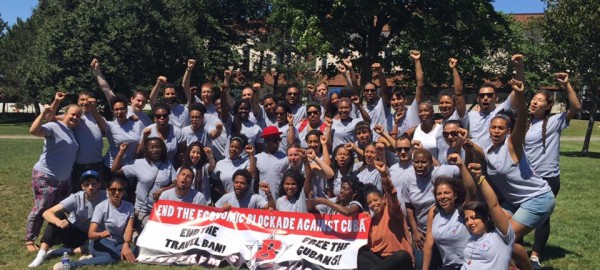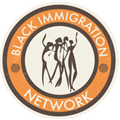
Black Lives Matter Visits Cuba
A group of Black Lives Matter activists reflect on the lessons they learned during a recent solidarity trip to Cuba
By Anita, Chapter Coordinator and Community Organizer with Black Lives Matter,
Amity, the BYP100 NYC Communications Co-chair,
Shannon, organizer with NYC Black Alliance for Just Immigration and Outreach Director for 2013 documentary film Black and Cuba
“Venceremos, my favorite word in Spanish, crossed my mind. Ten million people had stood up to the monster. Ten million people only ninety miles away. We were here together in their land, my small little family, holding each other after so long. There was no doubt about it, our people would one day be free. The cowboys and bandits didn’t own the world.” – Assata Shakur
Ninety miles south of the United States is a truly different world. As Black Lives Matter activists, from various groups in the movement, who have been calling for massive structural, political and social changes in our country, we decided to see just what change can actually look like. So in late July we came together with 45 strangers to embark on a life-changing journey to visit and learn about Cuba with the Venceremos Brigade.
In 1969, a coalition of young people formed the Venceremos, “We Shall Overcome”, Brigade, in order to show solidarity with the Cuban revolution and challenge U.S. policies towards Cuba, including the economic blockade and our government’s ban on travel to the island. Our trip, like those that came before us, consisted of work, educational activities, and travel.
We were introduced to a highly educated, politically conscious and diverse society that our government has tried to keep us from for more than 50 years. We met resilient, inspirational, loving people who taught us about generosity, community, humility, and the one simple truth of socialism: that people are consistently prioritized over profit. We found that even within socialism, racial justice is a struggle that must be fought for and encouraged. While we cannot claim to be Cuban experts after one or two weeks, we did learn a great deal about ourselves and what it will mean to continue to build and win a revolutionary movement in our own country.
The three of us — Anita, Chapter Coordinator and Community Organizer with Black Lives Matter; Amity, the BYP100 NYC Communications Co-chair and Shannon, organizer with NYC Black Alliance for Just Immigration and Outreach Director for 2013 documentary film Black and Cuba– came with different perspectives, met and bonded over our questions and analysis of the experiences we had during the trip.
We found that In Cuba, people do not like to talk about race.
For Cuba, racial discrimination is a curse that both fled the country with the Cuban exiles and stayed behind with the revolution.
To be fair to the Cuban revolution, many of the Black Lives Matter movement’s “radical” demands to alleviate the effects of structural racism have been fulfilled in Cuba: all education (including higher education) is free, healthcare is free, housing is subsidized, healthy food is subsidized, and more. In 1962 the Cuban government declared the end of racial discrimination through the implementation of these egalitarian policies. In the U.S., racism is aggressive and deadly, systemic and carefully calculated. Although not fully eradicated, we found it true that Cuba’s socialist model diminishes the presence of structural racism and Cubans rightfully take pride in being more socially advanced than the U.S. in their “pursuit” for racial equality.
But, more than 50 years into the ongoing revolutionary project in Cuba, racial equality has still not been fully achieved and is often not addressed directly. While Cuba is an amazing example of how socialism can work to benefit the good of all people, Cuba is also proof that socialism or any tactic other than deliberately and intentionally working towards eradicating institutional and structural racism will not yield total racial equality.
Recent Posts
- Black Immigrant Network – Too Important to Die an Internet Death
- Citizenship: Pursuit of a Path Beyond Paper
- On International Migrants Day, Black Voices Call for Immigration Reform With Racial Equity
- Webinar Invite: Black Perspectives on Immmigration Reform
- Reflecting on Bin’s Development on International Migrants Day
